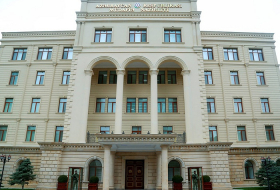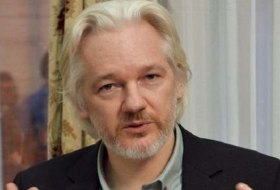Lippert, his face bandaged and his arm in a brace, would not comment on the specifics of the attack because of the police investigation. He refused to discuss possible new security measures, except to say U.S. officials would take "a hard look" at procedures in South Korea and then make a decision.
He said that since arriving in Seoul this past fall, he has "felt embraced and welcomed by the Korean people."
"In return, we have made it our mission to be open and friendly. And that will not change," he said.
Lippert has endeared himself to South Koreans by regularly walking his basset hound around his compound in downtown Seoul and giving his newborn son a Korean middle name. He said he was deeply moved by the messages of support he received, and that the attack would only strengthen an "unbreakable bond" between Seoul and Washington.
Media images of the bleeding ambassador shocked many in South Korea, a strong U.S. ally, and caused an outpouring of public sympathy. President Park Geun-hye and other senior officials visited Lippert in the hospital, while activists held a series of pro-U.S. rallies near the U.S. Embassy in Seoul.
Hundreds of activists rallied again in Seoul on Tuesday, waving U.S. and South Korean flags and holding signs with congratulatory messages for Lippert on his hospital release.
Doctors removed the 80 stitches needed to close the cut on Lippert`s face. Hospital officials said the ambassador was still feeling some pain in his arm, but that it was manageable with medicine.
The alleged attacker, known as an anti-U.S. activist who was previously convicted of hurling a piece of concrete at the Japanese ambassador in Seoul in 2010, was arrested Friday. Kim Ki-jong could face charges including attempted murder.
Police said Kim`s motive was not known, but that he shouted after the attack that he opposes the ongoing annual U.S.-South Korea military drills that North Korea condemns as a preparation for a northward invasion. Seoul and Washington call the drills defensive.
North Korea has called the knife attack "a deserved punishment," but has denied involvement.
South Korean critics have raised fears that President Park`s conservative government might use the attack to crack down on those seen as pro-North Korea. Already they say Park`s government infringes on freedom of speech in the name of coping with North Korea sympathizers.
Last year, a Korean-American woman accused of praising North Korea was deported, and the Constitutional Court ordered the dissolution of a small leftist party that officials say advocated a North Korean-style socialist system.
The U.S., which fought alongside South Korea during the 1950-53 Korean War, stations about 28,500 troops in the South as a deterrent against the North.
More about:














































